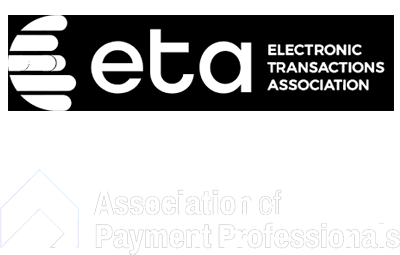10 Jan

Telemedicine has gained significant traction and become an indispensable tool in the healthcare industry. As more healthcare providers adopt telemedicine to provide remote patient care, the need for efficient and secure payment processing solutions has increased. This comprehensive guide will delve into the world of telemedicine credit card processing, exploring its importance, key features, payment gateways, compliance considerations, pricing models, and how to choose the right telemedicine credit card processor.
Understanding Telemedicine Credit Card Processing
Telemedicine credit card processing refers to the secure handling of credit card payments for virtual healthcare services. With the rise of telemedicine, it is crucial to ensure a seamless payment experience for patients and healthcare providers alike. By offering the convenience of online bill payment, telemedicine credit card processing streamlines the administrative process and improves patient satisfaction.
Telemedicine has revolutionized the way healthcare is delivered, allowing patients to receive medical consultations and treatments remotely. However, for telemedicine to truly thrive, a reliable and efficient payment system is essential. This is where telemedicine credit card processing comes into play.
Imagine a scenario where a patient has just completed a virtual consultation with their healthcare provider. They are satisfied with the care they received and are ready to make a payment. Telemedicine credit card processing enables them to do so easily and securely, without the hassle of mailing a check or handling cash.
The Importance of Credit Card Processing in Telemedicine
Credit card processing plays a vital role in telemedicine by facilitating secure and convenient payment transactions. It allows patients to pay for virtual consultations and related healthcare services from the comfort of their homes. By embracing credit card payments, healthcare providers can reduce the reliance on traditional billing methods, such as checks or cash, resulting in faster payment processing and improved cash flow.
One of the significant advantages of telemedicine credit card processing is its ability to enhance patient satisfaction. Patients appreciate the convenience of being able to pay their medical bills online, without the need to visit a physical location or deal with paper invoices. This streamlined payment process contributes to a positive overall telemedicine experience for patients, increasing their likelihood of continuing to seek virtual healthcare services in the future.
Furthermore, credit card processing in telemedicine also benefits healthcare providers. It eliminates the need for manual payment reconciliation, reducing the risk of errors and saving valuable time. With automated payment processing, healthcare providers can focus on delivering high-quality care to their patients instead of getting caught up in administrative tasks.
Key Features of Telemedicine Credit Card Processing
When selecting a telemedicine credit card processing solution, it is essential to consider several key features. Firstly, robust security measures are paramount to safeguard patient payment data. Look for processors that comply with Payment Card Industry Data Security Standard (PCI DSS) requirements and employ tokenization and encryption technologies to protect sensitive information.
Patients entrust their credit card information to healthcare providers, and it is crucial to prioritize their privacy and security. By choosing a telemedicine credit card processing solution with robust security measures, healthcare providers can instill confidence in their patients and build trust in the virtual healthcare ecosystem. PayBlox is the best first step you can take to getting the best solution for your business.
Secondly, integration capabilities with telemedicine platforms or electronic health record systems can enhance operational efficiency by automating payment processes. Seamless integration allows for a smooth flow of information between the telemedicine platform and the credit card processing system, reducing manual data entry and minimizing the risk of errors. This integration also enables real-time payment verification, ensuring that patients receive immediate confirmation of their payment.
In conclusion, telemedicine credit card processing is a critical component of the virtual healthcare landscape. It enables secure and convenient payment transactions, enhances patient satisfaction, and improves operational efficiency for healthcare providers. By embracing telemedicine credit card processing solutions with robust security measures, integration capabilities, and comprehensive reporting tools, healthcare providers can ensure a seamless payment experience and drive the growth of telemedicine.
The Role of Payment Gateways in Telemedicine
Payment gateways serve as the virtual bridge between healthcare providers, patients, and the card networks. They securely transmit credit card transaction data to the acquiring bank for authorization and settlement. Choosing the right payment gateway is crucial to ensure smooth and secure payment processing for your telemedicine practice.
Selecting the Right Payment Gateway for Your Practice
When selecting a payment gateway for your telemedicine practice, consider factors such as reliability, compatibility with your telemedicine platform, and data security. Look for gateways that offer seamless integration options, allowing for a streamlined payment experience. Additionally, ensure that the gateway supports industry-standard security protocols, such as Secure Sockets Layer (SSL) encryption, to protect sensitive patient data during transmission.
Security Measures in Payment Gateways
Security is of paramount importance when it comes to payment gateways. Look for features such as fraud detection and prevention tools, address verification services, and tokenization. These measures add layers of security and minimize the risk of unauthorized transactions or data breaches. Additionally, payment gateways that are compliant with the Payment Card Industry Data Security Standard (PCI DSS) ensure adherence to industry-wide security standards.
Compliance and Legal Considerations
When handling credit card payments in telemedicine, healthcare providers must adhere to various compliance and legal considerations to protect patient privacy and maintain regulatory compliance.
Understanding HIPAA Compliance in Payments
The Health Insurance Portability and Accountability Act (HIPAA) imposes strict rules regarding the privacy and security of patient health information. Any telemedicine credit card processing solution must comply with HIPAA guidelines to ensure that patient data is safeguarded. Look for processors that offer HIPAA-compliant solutions, including secure storage, transmission, and handling of patient payment information.
PCI Compliance in Credit Card Processing
The Payment Card Industry Data Security Standard (PCI DSS) outlines requirements for the secure handling of credit card data. Healthcare providers should choose credit card processors that are PCI compliant to ensure that patient credit card information remains protected. PCI compliance includes implementing robust security measures, conducting regular audits, and maintaining a secure network infrastructure.
Pricing Models for Telemedicine Credit Card Processing
When choosing a telemedicine credit card processing solution, it is essential to understand the pricing models available to make an informed decision.
Interchange-Plus Pricing Model
The interchange-plus pricing model is a transparent pricing structure that itemizes the interchange fees set by card networks, along with a fixed percentage or flat fee charged by the processor. While this model offers transparency, it can be more expensive for smaller telemedicine practices with low transaction volumes.
Tiered Pricing Model
The tiered pricing model categorizes transactions into different tiers based on their risk level. Each tier is associated with a specific rate, making it easier to understand pricing. However, this model can be less transparent, as processors may categorize transactions differently, potentially leading to higher costs for certain transaction types.
How to Choose a Telemedicine Credit Card Processor
Choosing the right telemedicine credit card processor is crucial for a seamless payment experience and to ensure the efficient operation of your practice.
Evaluating Processor Features and Services
Consider the features and services offered by telemedicine credit card processors. Let www.PayBlox.com match you to payment processors that offer robust security features, seamless integration options, comprehensive reporting capabilities, and dedicated customer support specifically designed for healthcare businesses. The assess if the processor aligns with your practice’s specific needs and goals.
Assessing Processor Fees and Contract Terms
Compare the fees and contract terms of different telemedicine credit card processors. Ensure that you fully understand the pricing structure, including any hidden fees, cancellation fees, and setup costs. Additionally, consider the contract terms, such as contract duration and termination provisions, to ensure flexibility and avoid long-term commitments that may not suit your practice’s evolving needs.
By understanding the importance of telemedicine credit card processing, exploring payment gateways, considering compliance and legal requirements, understanding pricing models, and choosing the right credit card processor, healthcare providers can establish a robust and secure payment infrastructure to drive patient satisfaction and practice success in telemedicine.






